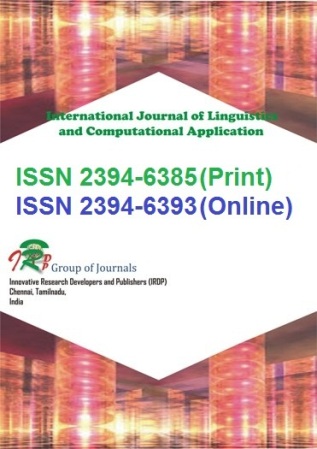
International Journal of Linguistics and Computational Applications
Yazarlar: Santhalin Shebila. S, Sankar. R
Konular:-
Anahtar Kelimeler:-
Özet: Nowadays road traffic in all urban and in national highways are increased and which leads to the accidents. The road traffic is controlled by using Radio Frequency Identification (RFID) technology [1][2]. The RFID sensor, sense the data about the vehicle which is near the signals and sends it to the controller. The controller receives the signal from the sensor to his/her smart phone and controls the traffic using his smart phone according to the emergency vehicles priority in the traffic. In this paper, the priority is given to the emergency vehicle to save the human life. This technology can be enhanced in big cities with huge traffic congestion. Furthermore, this paper can reduce the traffic congestion during the arrival of emergency vehicles to save the human life and to reach the appropriate destination. The algorithm which is used in this paper is Priority Based Control Algorithm to control the traffic in roads specifically for the emergency vehicles.